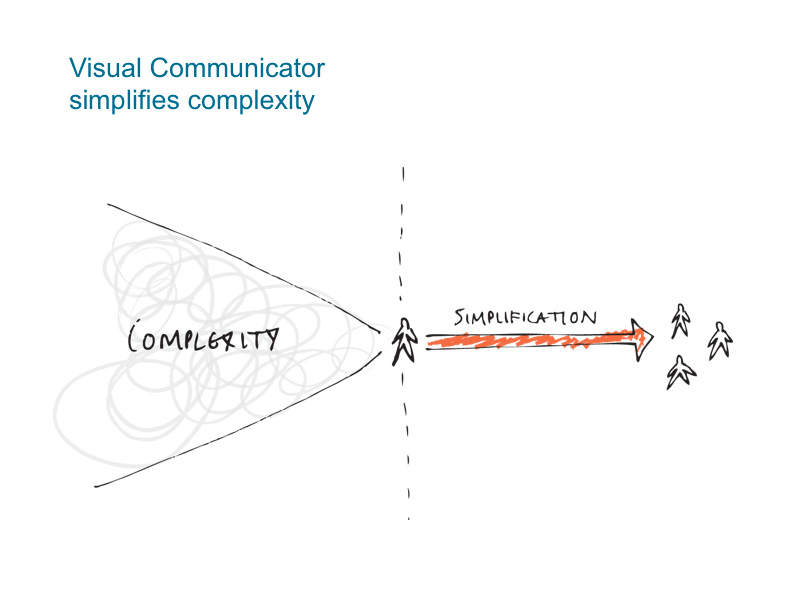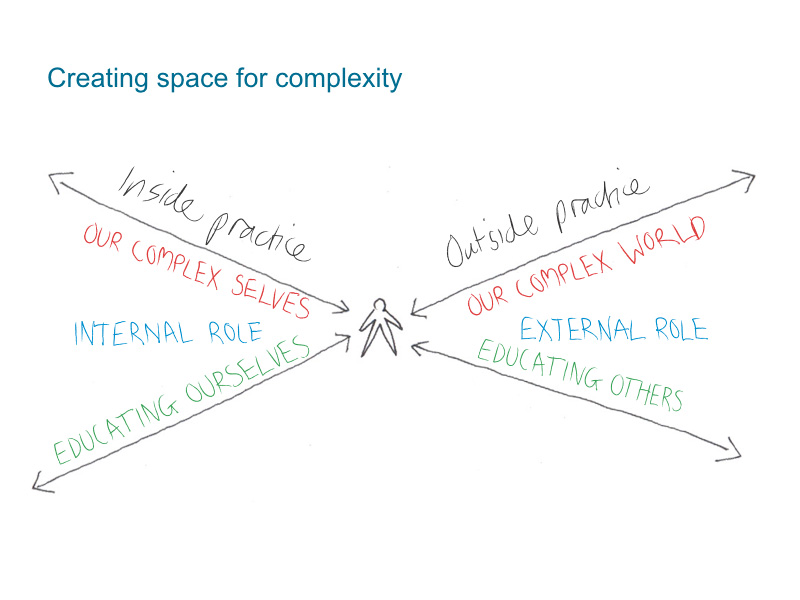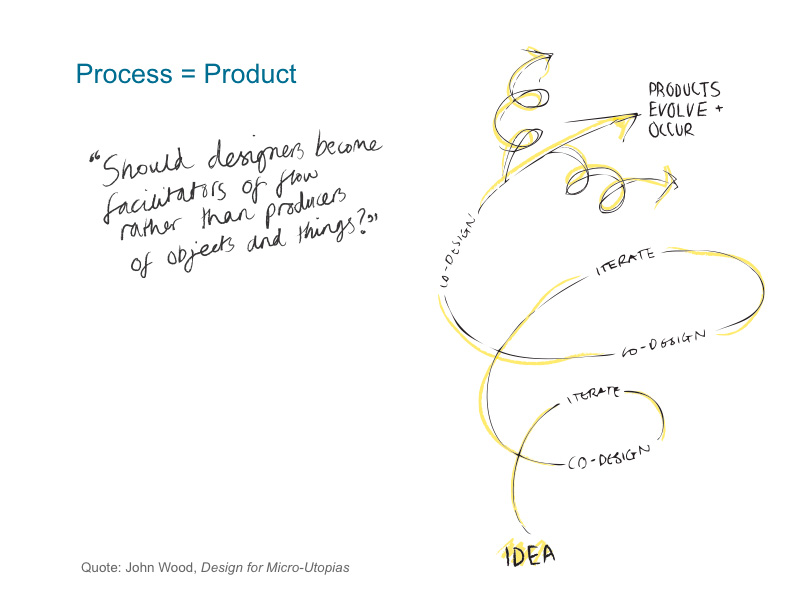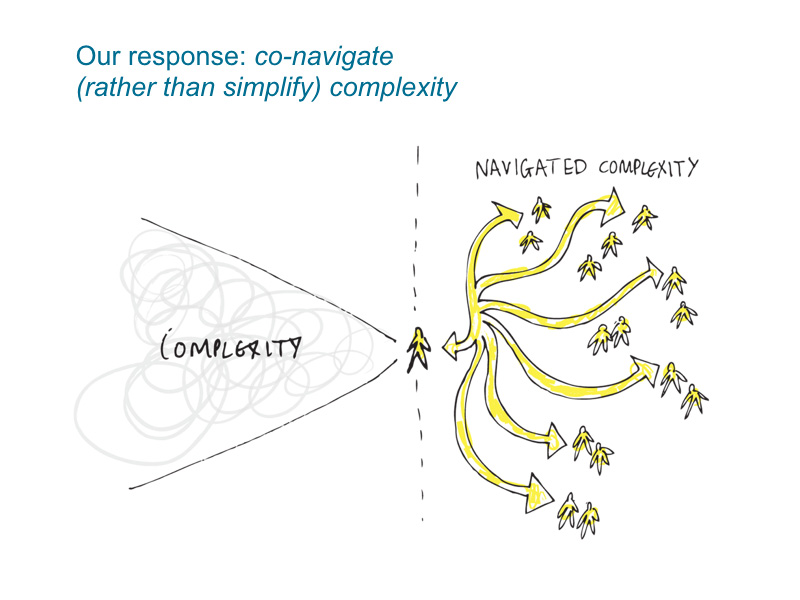Metadesign is a self-defining framework that helps designers to change paradigms. This cannot be achieved by design, as we know it. Habits fiercely resist change because, like all paradigms, they are part of a complex web of economic, cultural, aesthetic, psychological and other forces that reinforce one other. Metadesign has to be a team-based practice intended to bring about a more synergistic global society.
John Wood, Metadesigners Network
Expanding the role of the visual communicator
Paper written by written by Emily Wilkinson and Ivan Nascimento for ICTVC 2010 - Lending Grace to Language. Nicosia, Cyprus.
"Expansion helps us understand our complex realities. Integration of givers and receivers through co-design involves together co-navigating problems and an opening, which requires acceptance of ‘not knowing’ to discover solutions, which in turn creates a diverse, reciprocal, questioning, meaningful, purposeful, aware and effective communicative process and message where we learn from each other. Through this collaborative opening we can respond more fully to the complexity of being, our intrinsic connection with others, and our world. Through complexing role of the visual communicator we negotiate, navigate and illuminate ethical pathways through complex realities, and believe that everyday “utopias” could be attainable."
Voice and Accountability Tool Engagement Framework
This tool can be used in different places and for different types of advocacy, and helps CAFOD and its partners to think about the wider context of their work as well as their achievements. The levels are cumulative, and require partner organisations to think through the reasons why they might be classed at one level or another by providing anecdotal evidence in each case. The tool does not prescribe which elements to emphasize in any given level. Organisations may find elements of their work in more than one box but are asked to best approximate their level on a yearly basis.




